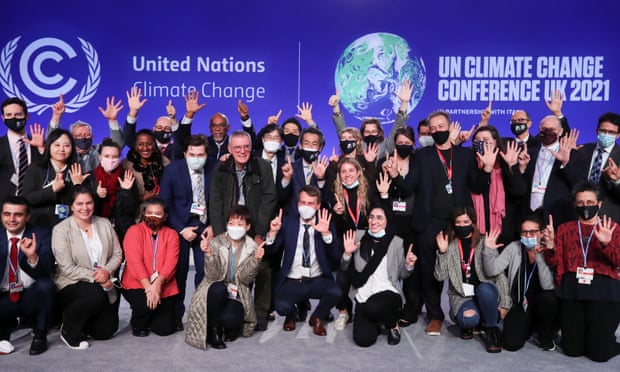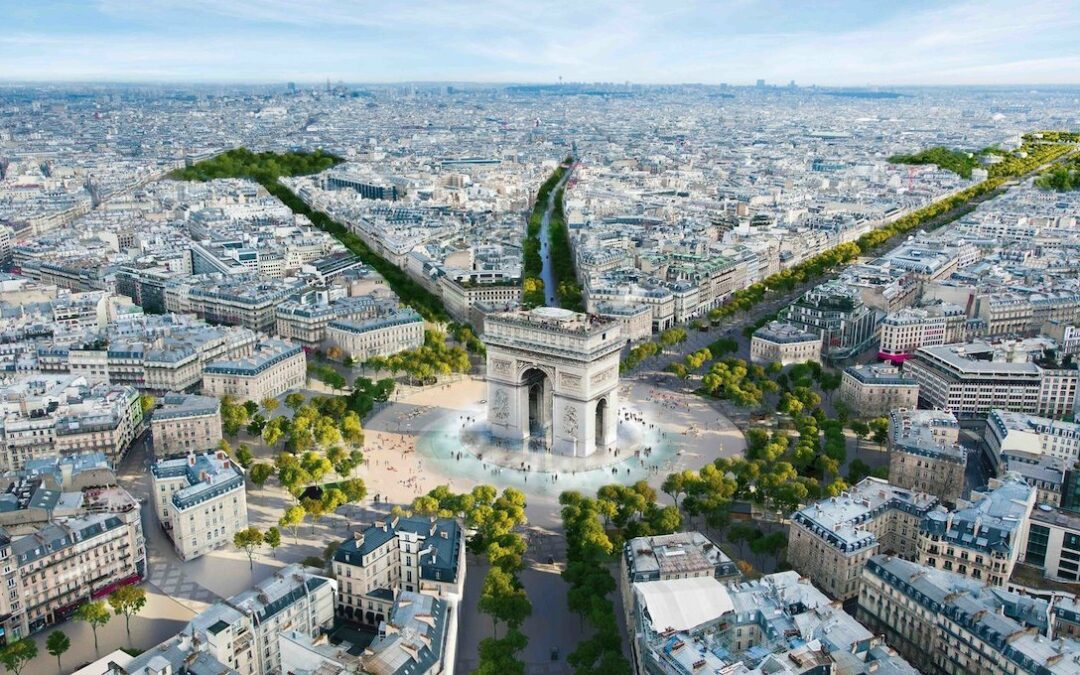
Cop26 took us one step closer to combating the climate crisis
Photograph: Yves Herman/Reuters
If a bus were hurtling towards a child in the middle of the road, no one nearby would take merely one step to get that child out of the way. They would rush, at speeds previously unbeknownst to them, using every muscle in their body, to get that child to safety.
On the climate crisis, a bus is careering toward us and we have still not flexed all our muscle power to get ourselves or future generations to safety.
Emissions continue to rise. The loss and damage is devastating. Trust has been breached. The resulting frustration, anger and incredulity at the pace of progress is warranted. As activists of all stripes remind us constantly, we need systems change, not climate change. And they are absolutely right.
At the same time we should understand our double predicament. First, we are actually in the midst of a systems change, and it is precisely the systemic nature of the change that slows the pace for now – until we hit positive tipping points. If we only had to transform one sector, or move one country off fossil fuels, we would have done so long ago. But that is not what it takes. All sectors of the global economy have to be decarbonised, even the hard-to-abate ones, and all countries must switch to clean technologies, especially those that have depended on exporting or importing fossil fuels for decades. It is a deliberate metamorphosis that is more complex and far reaching than any transformation we have ever attempted.
Second, just as the transition gathers pace moving from gradual to exponential, the window within which we need to achieve it constantly shrinks. The speed of change foreseen in Paris in 2015 has been superseded by improved scientific understanding and the shocking escalation of impacts being felt by the most vulnerable. We now know that we must halve global emissions no later than 2030. It is as though the bus suddenly accelerated as we were approaching the child.
And yet none of the above can keep us from doing what needs to be done – the consequences are simply too dire.
Read the rest of the article in The Guardian.
